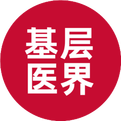
Pills
Also known as wán yào (丸药), pills are made by grinding Chinese herbs into fine powder and adding excipients. The two common types are honey pills (蜜丸) and water pills (水丸). The absorption of pills in the gastrointestinal tract is relatively slow, leading to a milder effect, hence the saying “pills act slowly”. However, their medicinal effects last longer, making them suitable for treating chronic diseases. Based on the type of binder used, pills can be classified into the following categories:
1. Honey Pills: Made from powdered herbs with honey as the binder, this is the most widely used type in clinical practice. Pills weighing 0.5 grams or more (including 0.5 grams) are called large honey pills, while those weighing less than 0.5 grams are small honey pills. Honey is rich in nutrients and has functions such as moistening the lungs and relieving cough, as well as promoting bowel movements. It is characterized by a soft texture, slow absorption, and mild action. Tonic herbs, pediatric medications, and valuable herbs with volatile components are often made into honey pills, commonly used for treating chronic and debilitating diseases, such as Liù Wèi Dì Huāng Wán (六味地黄丸) and Rén Shēn Lù Róng Wán (人参鹿茸丸).
2. Water Honey Pills: Made from powdered herbs mixed with water and honey in appropriate proportions as the binder. The characteristics of water honey pills are similar to honey pills, with slow and lasting effects, but they contain less honey, making them lower in moisture, easier to store, and consume. They are often used for tonic herbs, such as Bǔ Zhōng Yì Qì Wán (补中益气丸).
3. Water Pills: Made from powdered herbs with water, vinegar, herbal juice, or yellow wine as the binder. Water pills can also be coated if necessary. They are small in size, with a dense and smooth surface, making them easy to swallow and resistant to moisture.
4. Concentrated Pills: Made from the decoction or extract of all or part of the herbs, combined with suitable excipients or powdered herbs and an appropriate binder. Depending on the binder used, they can be further divided into concentrated honey pills, concentrated water pills, and concentrated water honey pills. Concentrated pills are small in size, with a high content of active ingredients, easy to take, and dissolve slowly in the body. They are suitable for various diseases, including chronic conditions.
5. Paste Pills: Made from powdered herbs with rice paste or flour paste as the binder. Paste pills are hard in texture, dissolve slowly in the body, prolonging the medicinal effect and reducing the release of certain toxic components or the irritation of the gastrointestinal tract. Highly irritating or toxic drugs are best made into paste pills.
6. Wax Pills: Made from powdered herbs with beeswax as the binder. Wax pills are one of the long-acting forms of traditional Chinese medicine, dissolving extremely slowly, prolonging the medicinal effect, and preventing drug toxicity or strong irritation to the gastrointestinal tract. Prescriptions containing a significant amount of highly toxic or strongly irritating drugs, or those requiring absorption in the intestines, can be made into wax pills, a traditional form of Chinese medicine.
7. Micro Pills: Made from powdered herbs with water or alcohol, or coated with Bǎi Cǎo Shuāng (百草霜), using modern technology. Micro pills have a diameter of less than 2.5 mm, are small in volume, require a small dosage, are convenient to take, and have stable absorption. They are suitable for irritating drugs, and valuable or finely powdered herbs are often prepared as micro pills.
8. Drop Pills: Made using a suitable matrix with the drop pill method. Drop pills are easy to take, dissolve quickly in the body, and act rapidly. Volatile or difficult-to-form drugs, as well as fast-acting medications, can be made into drop pills. This form is unique to China and can be used for internal, external, and local applications, as well as for sustained-release formulations.
Recommended Previous Articles
1. Addressing the Retirement Issues of Rural Doctors Cannot Be Delayed Any Longer, Urgent Support Needed from Multiple Departments!
2. All Provincial Rural Doctors’ Pension Insurance Must Be Implemented by March 2, in Line with Village Officials.
3. Rural Doctors Monitoring Body Temperature with Negligence Face License Suspension and Fines; The Underlying Issues Are Worth Reflecting On!
4. Do Not Let Photo Documentation Hurt the Feelings of Rural Doctors.
5. Good News, Grassroots Medical Institutions Can Resume Normal Medical Services! Failure to Recover Will Lead to Accountability!
6. Prevention and Control Are Not Over Yet; Public Health and Family Doctor Contract Tasks Are Coming Again, Rural Doctors Are Upset!
7. National Supervision Begins, Grassroots Medical Institutions Will Be Focused on These Contents!
8. Rural Doctors Take Note! Be Aware of These Common Diseases in Rural Areas in April!
9. Cannot Use IV Drips, Grassroots Doctors Need to Find New Solutions!
Disclaimer
1. This article only represents the author’s personal views and is not related to this platform.
2. If there is any infringement, please contact the editor for timely deletion!
3. For original authorization, please contact 010-58302828-6872 or [email protected].
WeChat ID: zgsqys-cyzj
 Long press to recognize the QR code to follow me
Long press to recognize the QR code to follow me
Different Types of Pills in Traditional Chinese Medicine and Their Functions

